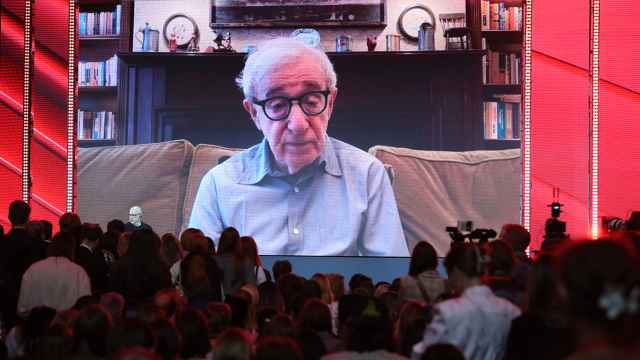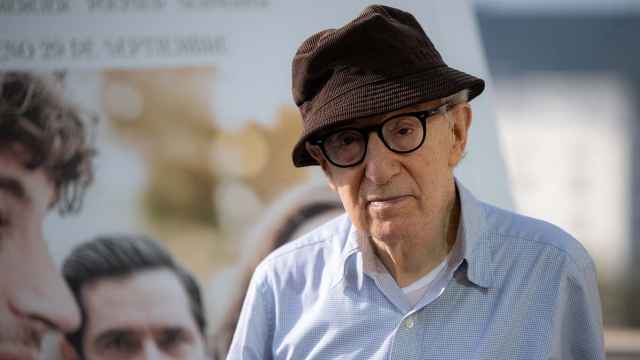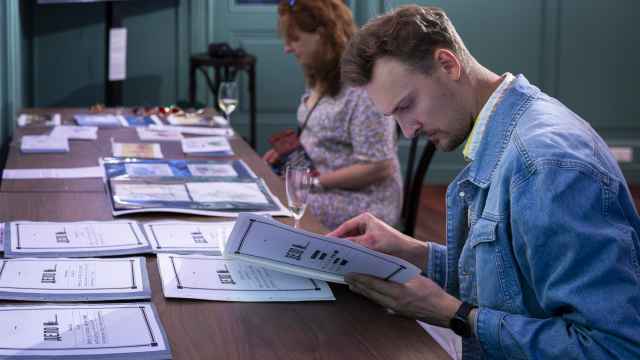Yevdokia Urusova was born 101 years ago this month &mdash October 28, 1908, to be exact. I came to know her briefly at the end of her life (she died in 1996) because my wife performed with her on stage. The premiere of their show, Michael Redgrave's dramatization of Henry James' "The Aspern Papers," involved a moment I have never forgotten. But let me hold that thought for a moment and first say a few words about Urusova's past.
Urusova &mdash whom everyone, even encyclopedias, called Eda (sometimes incorrectly spelled Edda) &mdash was one of those people whose individual lives somehow embrace the entire history of a nation. She was an imposing, yet warm and gracious, woman, a descendant of the great Urusov line of Russian princes.
One of her earliest known ancestors was Tamerlane's favorite general in the 14th century. Other ancestors prominently served all the Russian tsars beginning at least with Alexei Mikhailovich in the early 17th century. They included high state functionaries and officers who rode in all of Russia's major military campaigns. One was instrumental in leading the campaign against the notorious rebel Stepan Razin. Five Urusovs fought in the war against Napoleon. By the 18th century, the Urusov family had begun to have an impact on the arts. Pyotr Urusov was one of those responsible for building the first public theater in Russia in the 1750s.
Urusova's maternal line was hardly less illustrious. It boasted some of Russia's most prominent literary figures of the 19th century. These included Yevgenia Tur, a journalist, editor and author of many popular novels; Tur's son Yevgeny Salias, sometimes known as the "Russian Alexandre Dumas"; and most notably, the playwright Alexander Sukhovo-Kobylin, author of one of the greatest trilogies of tragicomedies in Russian theater history. Urusova once told how when she was a little girl she could get into any Moscow theater merely by informing the ticket takers that she was a relative of Sukhovo-Kobylin.
By the late 1920s and early 1930s, Urusova was becoming famous herself as one of the leading actresses of Moscow's Yermolova Theater. Between 1926 and 1938, she performed in 23 productions. But as she prepared one day to leave for Leningrad with the rest of the theater company, that all changed. Representatives of the NKVD pulled Urusova and her husband Mikhail Unkovsky off the train and arrested them, as documents show, for belonging to a "counter-revolutionary fascist terrorist group." Unkovsky was never heard from again. Urusova spent the next 17 years in Siberian labor camps.
Urusova was fortunate, as she used to say, because "her profession and people" helped her survive. As an actress, she was assigned to various prison camp theaters where she was exempted from hard labor. When the Thaw began in earnest in 1956, she was freed and immediately rejoined the Yermolova Theater. In one of those twists of fate that life occasionally tosses out, the first play she performed in was a dramatization of Fyodor Dostoevsky's "Crime and Punishment."
By the time I met Urusova in 1993, she had not performed anything new in four years. The Yermolova Theater was experiencing the growing pains of a youth movement, and the 80 year-old actress was not in demand.
It so happened that Boris Lvov-Anokhin, the artistic director at the Novy Drama Theater, asked both Urusova and my wife Oksana Mysina to perform in his production of "The Aspern Papers." Urusova played an old countess who had lived a rich life and had been a muse to great poets. Oksana played her lonely niece who knew nothing of life but what her aunt had told her. The premiere took place on November 18, 1993. And it was on this night that one of my strangest experiences as a theatergoer took place.
In my notebooks the next morning I wrote that "Urusova made five appearances throughout the night, but it was her fourth appearance that is now forever burned in my memory." I added this: "Her two minutes sitting absolutely motionless on a simple straight-backed chair were certainly among the most powerful theatrical images I have ever seen."
I then described the scene in more detail:
"She does absolutely nothing. Suddenly, a screen tips over and flops on the floor with a muted thud. There sits Urusova in a wheelchair. Staring straight ahead. Her lower lip quivers and that is it. In her face, her eyes, her motionless arms resting on her lap, she exudes a withering, crushing, monumental understanding of life. Those two minutes, that astonishing quivering lower lip, that black, cosmic stare, that revelatory motionlessness are what make the entire production. Without that moment, nobody else has anything to play. Without it, everything before is fluff and everything after is melodrama. Urusova's two minutes on that chair are the show. In those two minutes, Lvov-Anokhin peeled back the facade of everything and showed it square and unadorned. It is a stunningly powerful enigma. When I told Urusova at the banquet afterward that I was knocked out by this scene, she, naturally, gave all the credit to Lvov-Anokhin."
That's all fine and good. But imagine my surprise the next night when I returned to see the show again and I realized that in this scene, which actually ran a good five or six minutes, Urusova had an extended monologue!
Several lessons may be drawn from this incident. 1. A husband at his wife's premiere may not be lucid; 2. A critic should always keep a notebook handy. Memory is not a reliable phenomenon; and 3. Husbands make lousy critics.
But the real lesson I learned that night is that great acting can blow out the synapses in our perceptions.
I may have been wrong about what actually transpired on stage that night. But I was not wrong in what mattered &mdash Urusova poured an entire life into those few minutes on stage, and I saw that whole life flash before my eyes.
A Message from The Moscow Times:
Dear readers,
We are facing unprecedented challenges. Russia's Prosecutor General's Office has designated The Moscow Times as an "undesirable" organization, criminalizing our work and putting our staff at risk of prosecution. This follows our earlier unjust labeling as a "foreign agent."
These actions are direct attempts to silence independent journalism in Russia. The authorities claim our work "discredits the decisions of the Russian leadership." We see things differently: we strive to provide accurate, unbiased reporting on Russia.
We, the journalists of The Moscow Times, refuse to be silenced. But to continue our work, we need your help.
Your support, no matter how small, makes a world of difference. If you can, please support us monthly starting from just $2. It's quick to set up, and every contribution makes a significant impact.
By supporting The Moscow Times, you're defending open, independent journalism in the face of repression. Thank you for standing with us.
Remind me later.






